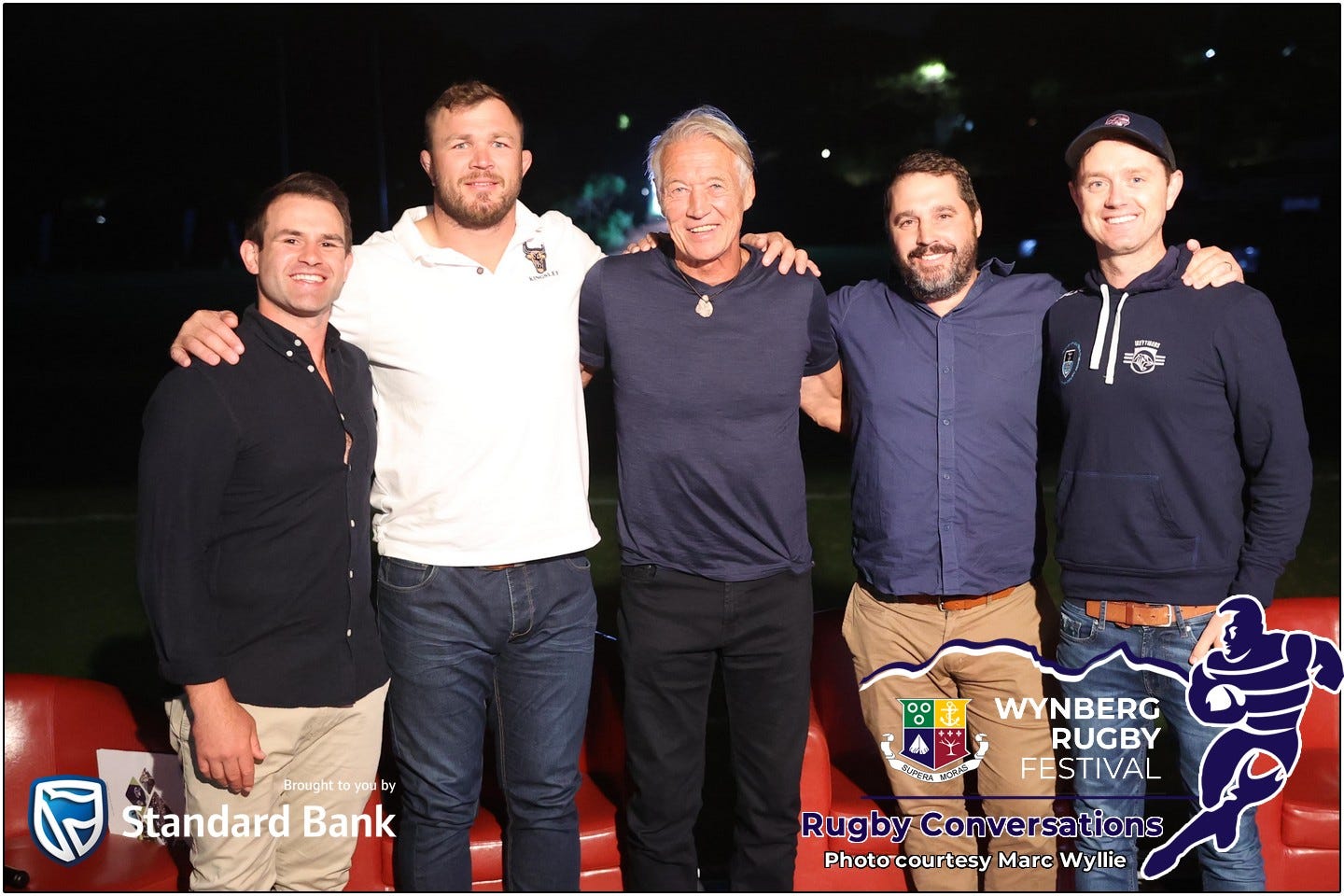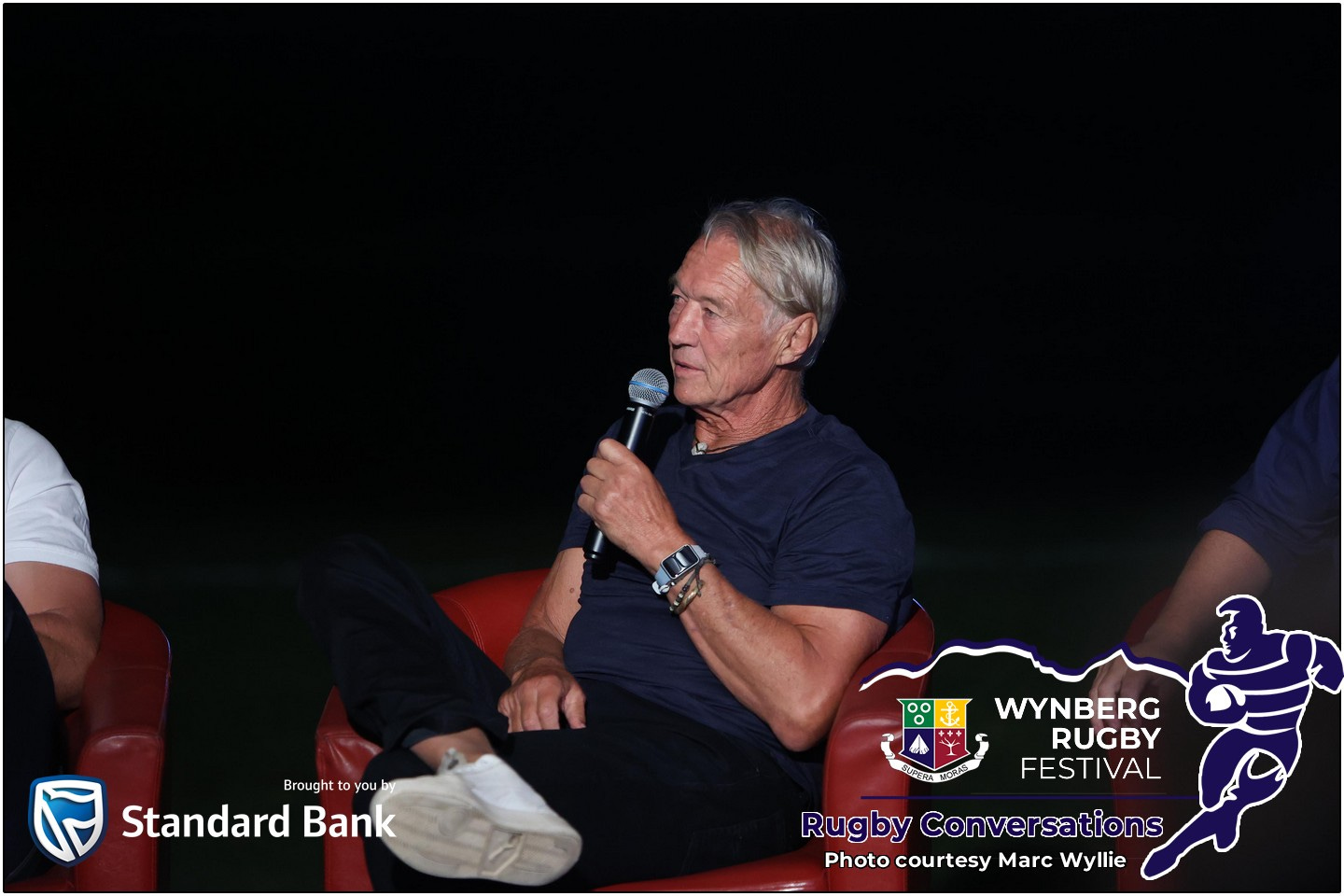Pure Gold
On Writing Your Own Story
About a month ago at an event at his alma mater, Wynberg Boys’ High, Springbok legend Rob Louw was asked what it meant to him to see this Springbok team go back-to-back with World Cup victories. His words have stayed with me.
He spoke about how fortunate he was to tour the United Kingdom with the South African Barbarians in 1979. Significantly, this team was the first multiracial South African touring team, made up of equal numbers of white, coloured and black players. On this tour, he got the opportunity to play alongside the tremendous Errol Tobias for the first time, and they struck up a lifelong friendship.
A couple of years later, Errol Tobias became the first player of colour to represent the Springboks, playing six tests between 1981 and 1984, including three series victories. Against England at Ellis Park in 1984, Tobias scored a superb try and set up Danie Gerber’s hat-trick after which, England coach Dick Greenwood famously commented, “Errol Tobias is not coloured — he’s pure gold.”

Louw witnessed the immense talent in South Africa that was being overlooked and was convinced that within a decade or so there would be several players of colour representing the Springboks. It wasn’t to be, the 1995 World Cup-winning Springboks had only one black player in Chester Williams.
While there was incremental progress since 1995, Siya Kolisi’s team, our current team, is the first Springbok team that even somewhat resembles the demographics of South Africa. This is what made these World Cup victories special for Rob Louw.
After the Springboks won the 1995 World Cup, Errol Tobias was invited to lunch with Nelson Mandela alongside Chester Williams. He had this to say about that day:
“[Mandela] told me that when I was picked to play for the Springboks that he and all of the prisoners really wanted me to do well. He said that it showed white South Africans that if we give someone of colour a chance, look at what they can do and how we can help make a better South Africa. It made me really happy to hear this from Madiba.” The Irish Times
Watching the recently released Chasing The Sun 2 documentary series, I was struck by how much the Springboks talk about their purpose of playing for South Africa and giving hope to every South African.
One of my favourite scenes from the documentary is when Kurt-Lee Arendse, one of the Springboks’ most influential gamebreakers, visits the butchery in Paarl where he worked as a 20-year-old. After missing out on a professional contract with the Boland Cavaliers, he was packing meat by day, and training every evening in the hope that an opportunity would come his way. We saw the warmth of his connection with his former colleagues and got a glimpse of what his life might have looked like without rugby.
The Springboks' thrilling trifecta of one-point triumphs in the 2023 Rugby World Cup was the highlight of my rugby-watching life. While the Springboks' victory brought temporary euphoria to the nation, the return to routine was inevitable, and we still put our trousers on one leg at a time.
Do I feel the hope that Rassie and Siya repeatedly mention? The stories of Arendse, Nche, Libbok, and Mbonambi are of course inspiring for any young sportsman looking to overcome the odds to play at the highest level. But how does winning a rugby match really change things for the average South African?
Perhaps the answer lies in Jacques Nienaber’s impassioned plea to the Springboks ahead of the final:
“They can script anything they want. At the end of the day, we will decide what the story will look like. And I think that breaks them. You guys have the ability to go, ‘Fuck you, we’ll write our own story. You will not tell us what story to write.'”
It’s difficult to imagine the weight of the doors that Errol Tobias had to kick down to play for the Springboks in the 1980s. While that weight has lessened in the subsequent decades, the majority of South Africans don’t go to schools with the rugby pedigree of the likes of Wynberg Boys’ High, where we sat, overlooking their exceptional fields.
Errol Tobias helped pave the way for many South Africans to write their own stories. In the years to come, when I stand up to sing Nkosi Sikelel' iAfrika on a Saturday afternoon with my team in the green and gold, I’ll ask myself whether I’m the one writing my own story. Then, I’ll help myself to an ice-cold Castle.


Love this Nic. I feel the Hope too.